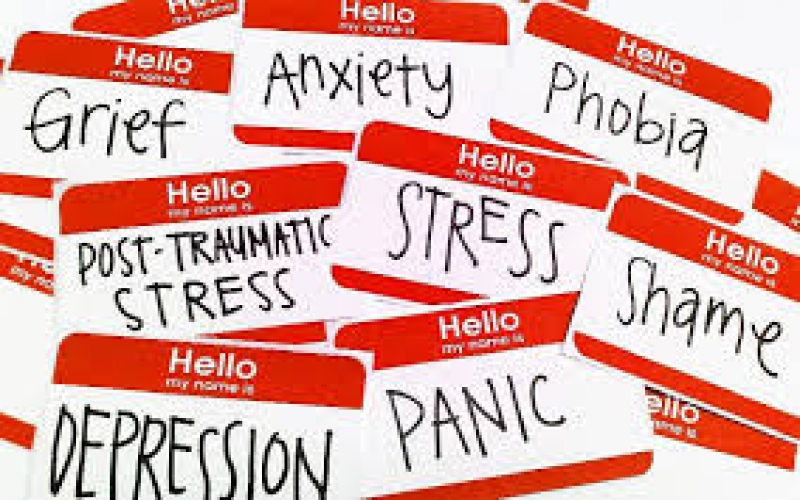
If you look at my family genogram, you will notice that I am predisposed to mental illnesses like schizophrenia and postpartum depression/psychosis.
After taking a class on the Psychology of family and marriage during my fourth year at the university, I noticed the genetic predisposition comes from my maternal grandmother.
She had several psychotic breaks during her child-bearing years and schizophrenia in the mid-80s. So I knew that there was a probability of getting into depression but I just didn’t know it would hit me that hard.
I fell into postpartum psychosis a few weeks after delivering my first child in January 2017. Statistics show this psychosis is a rare mental illness which affects every two out of every 1,000 women globally.
The first time I experienced it, I was at home with family, my in-laws. I was just over a year from graduating but I was jobless. I felt so guilty for that because my parents provided everything for me and my daughter.
How it started
I felt like I was a burden to everyone around me. So I wanted to die. I had suicidal thoughts. I would go to the kitchen looking for the knife, but every time I tried, something stopped me. I felt powerless.
The in-laws had paid a visit to “salimia mtoto.” The event was a huge party… gifts, food, speeches and all the niceties. I am usually a people person but on that day and several that followed after, I was detached from people.
It started with anxiety. I started feeling paranoid and suspicious about everything. I felt like everyone around me had no good intentions. Then I fell into depression. I could not sleep for days. I thought I would die if I closed my eyes.
Then I went into psychosis. I started having delusions and strange beliefs about everything around me. I saw and believed in things that didn't exist but they were so real to me.
I saw a dead person’s obituary on the hospital door where it is usually the face of a pretty woman telling you if the doctor is in or out.
I couldn't take a shower for days because I knew I was going to die anyway. I couldn't talk to anyone either because I felt like they were not believing me or the things I was hearing or seeing.
I had totally forgotten about my child. To me, she did not exist. At some point, I even believed that I had not really given birth or perhaps she was not really mine maybe they switched her at birth.
Success
Stay informed. Subscribe to our newsletter
I started believing that my family was cursed because my brother had experienced a psychotic break a few weeks before and after I gave birth. I felt like the world was coming to an end and I was going to die and go to hell.
Everything was upside down for me. It was the darkest phase of my life, yet I was able to go through it.
God's grace was and still is sufficient. My family and a few friends were so supportive, which is why I am here today.
I had at first refused to take the medications because I felt like they were going to kill me. But I later agreed to it because a psychiatrist talked to me and made me understand everything I had gone through.
I also went through several counselling sessions which helped a lot. I was broken, but God's grace was and still is sufficient.
I'm now a happy mother of two beautiful girls because my support system was on the lookout in case of a relapse. Truth be told, I almost went back there but they arrested the situation before hell broke loose.
I will forever be grateful to God for putting people in my life who have been so supportive. If you are planning to be a parent or are already there, make sure you have a very strong support system around you. It helps a great deal.
My first time as a mum was not easy, neither is the second and yes I know that if I ever get another child, maybe the third time or more, it will not be easy either. It is never easy. But with a strong support system, you can do it. With God, you can do it.
Postpartum psychosis is temporary and treatable with professional help, but it is an emergency and it is essential that you receive immediate help.
If you feel you or someone you know may be suffering from this illness, know that it is not your fault and you are not to blame. Call your doctor or an emergency crisis hotline right away so that you can get the help you need.
You are welcome to share your mental health experiences with us at [email protected] we will publish as part of our Mental Health Awareness Campaign
-Editor
 The Standard Group Plc is a
multi-media organization with investments in media platforms spanning newspaper
print operations, television, radio broadcasting, digital and online services. The
Standard Group is recognized as a leading multi-media house in Kenya with a key
influence in matters of national and international interest.
The Standard Group Plc is a
multi-media organization with investments in media platforms spanning newspaper
print operations, television, radio broadcasting, digital and online services. The
Standard Group is recognized as a leading multi-media house in Kenya with a key
influence in matters of national and international interest.
 The Standard Group Plc is a
multi-media organization with investments in media platforms spanning newspaper
print operations, television, radio broadcasting, digital and online services. The
Standard Group is recognized as a leading multi-media house in Kenya with a key
influence in matters of national and international interest.
The Standard Group Plc is a
multi-media organization with investments in media platforms spanning newspaper
print operations, television, radio broadcasting, digital and online services. The
Standard Group is recognized as a leading multi-media house in Kenya with a key
influence in matters of national and international interest.








